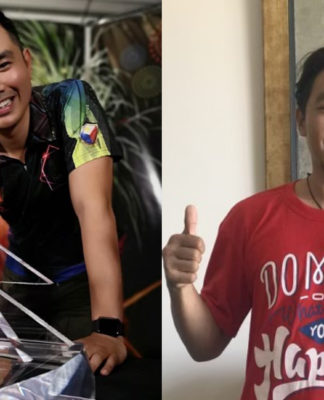THE INDIAN Ambassador to the Philippines has called on India and the Philippines to “think differently” to discover the true potential of both countries.
In the forum “Look-East Policy: Implications on Philippine-Indian Relations” held at UST Miguel de Benavides Library Conference Hall last Sept. 24, Ambassador Shri Amit Dasgupta said both countries should open their markets in response to the economic crisis affecting the whole world.
“Neither of our countries are so rich nor so wealthy that [they] are in a position to carry on as we are carrying on…The need to bring about development is acute,” Dasgupta said.
The so called look-east policy, which emerged in the 1990s, is not aimed against any country, he said.
“Every country would like to maximize benefits for themselves. The look-east policy is a system by which India and Asia can maximize benefits. [It] is market liberalization.”
Dasgupta described the bilateral relations of India and the Philippines as “warm and cordial,” although not deep.
“I think the knowledge in the Philippines about India is so restricted. That really needs to be changed. Many Filipinos know about India only through Bollywood,” Dasgupta said.
Laura Q. Del Rosario, Department of Foreign Affairs undersecretary for International Economic Affairs, agreed.
“The Indian influence, unfortunately, is not felt too much in our part of the world,” she said. “We hardly feel it except perhaps in their presence in business…”
Del Rosario, who finished her master’s degree in literature studies in UST as benemeritus or with the highest honors, served as the country’s envoy to India from 2003 to 2007.
Dasgupta, who first visited the country 25 years ago, cited other areas in which India can work with the country, especially in vocational education and training.
Meanwhile, Del Rosario said that though the Philippines is still on top when it comes to call center services, the country relies on India in terms of software advancement.
“I think we can look at professional exchange services in the future. We can learn a lot from India in terms of medicine, science and technology,” she said.
The Asian studies department hosted and organized the forum, which was attended by Prof. Michael Anthony Vasco, dean of the Faculty of Arts and Letters; Lino Baron, Asian Studies program coordinator; Dennis Coronacion, Political Science professor at the Faculty of Arts and Letters; and third-year Asian studies students.
















